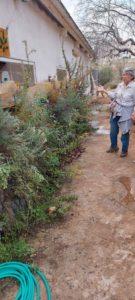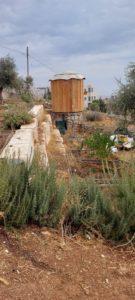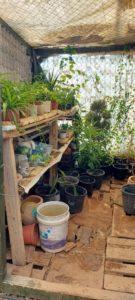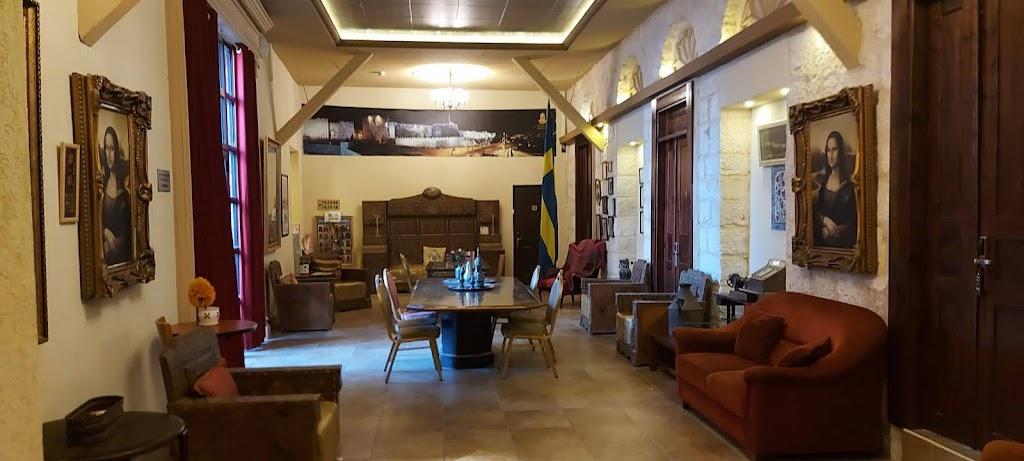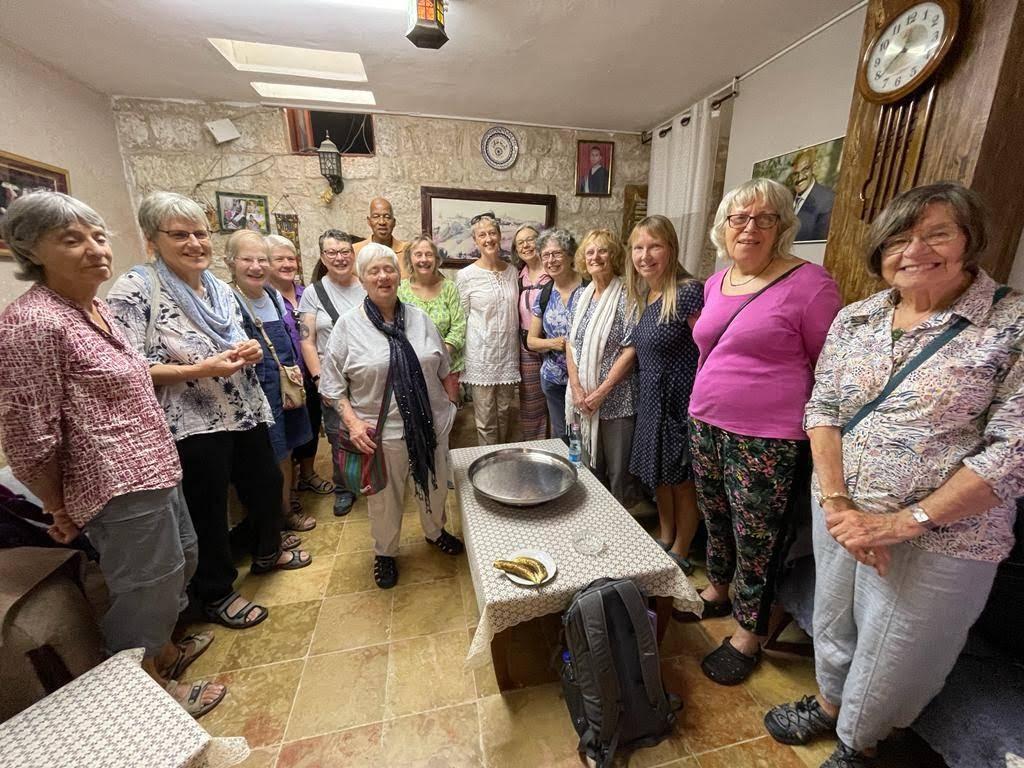In a tranquil spot overlooking the valley in Bethlehem sits the Palestine Institute for Biodiversity and Sustainability, also home to the Palestinian Museum of Natural History – ‘an oasis of for people and wildlife in a place of conflict and rapid transformation’. It is an urban farm on dry stony terraced land. There is a fabulous selection of trees – oak, hawthorn, pomegranate, peach, olive, plum, mulberry, carob, Palestinian (non edible) pistachio, strawberry tree, pecan, almond and bitter almond, all native and drought resistant. We saw a basic semi-closed system for recycling water from the fish (edible) tank (so nutritional) to enable vegetable beds to grow. The greenhouse and vertical gardens are made from recycled plastic water bottles. There is much more to be said about the huge variety of work here, the rare plants, hydroponic and aquaponic systems, laboratories for recording Palestine’s flora and fauna and I’d recommend signing up to receive Dr Mazim’s amazing emails/blogs. After our trip, Celia will be volunteering here for 3 weeks.
Dr Mazim Qumsiyeh returned to Palestine in 2008 and and his wife Jesse set up the centre in 2014. They see the project as the next chapter in the manifestation of Palestine’s 12000 year history, rooted in empowerment, freedom and sustainability and an act of resistance against what Dr Mazin describes as Jewish supremacy and colonialisation.
While we were there, the calm and peacefulness was temporarily destroyed by 10 Israeli fighter planes flying over. We later learnt that Israel shelled Damascus last night.

